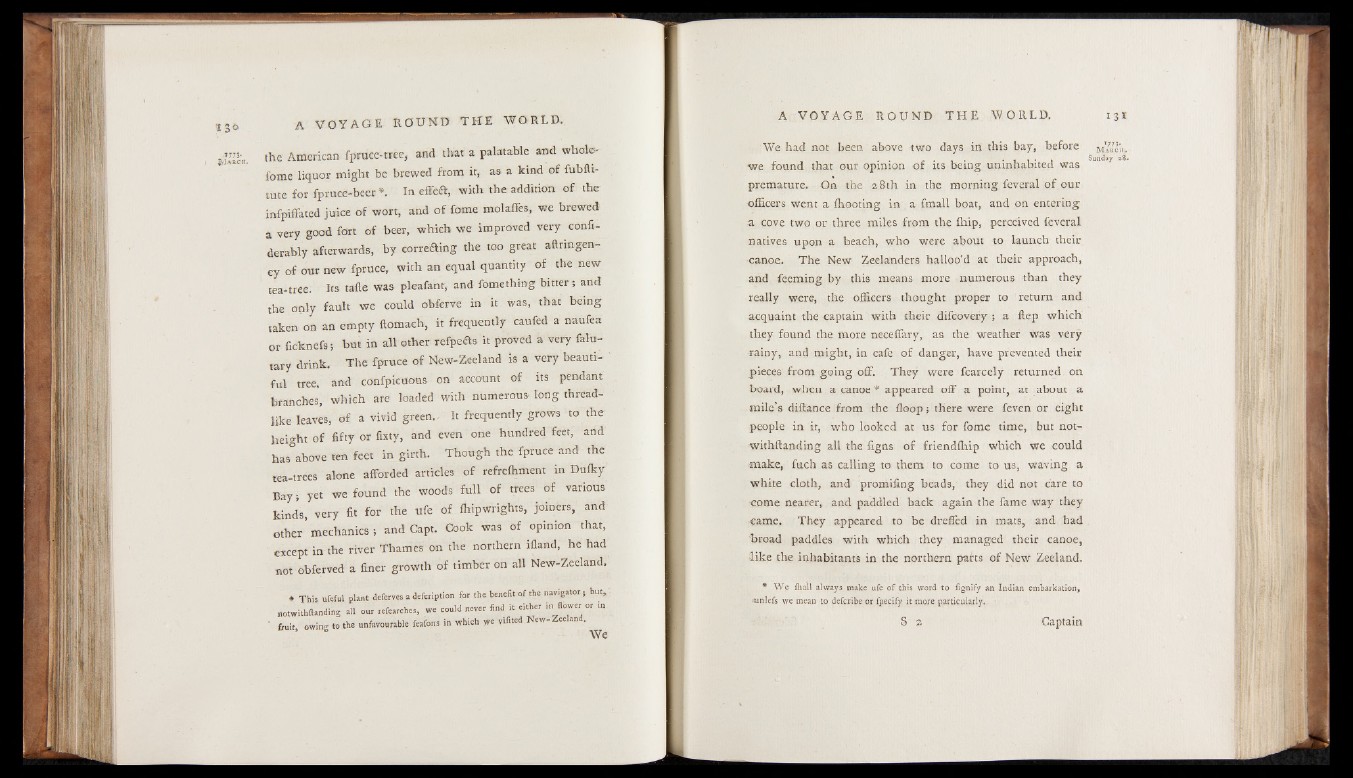
■»773-
jyiA&CH.
the American fpruce-tree, and that a palatable and whole-
fome liquor might be brewed from it, as a kind of fubfti-
tute for fpruce-beer*. In effeft, with the addition of the
infpiffated juice of wort, and of fome molaffes, we brewed
a very good fort of beer, which we improved very confi-
derably afterwards, by correaing the too great aftrmgen-
cy of our new fpruce, with an equal quantity of the new
tea-tree. Its tafte was pleafant, and fomething bitter; and
the only fault we could obferve in it was, that being
taken on an empty ftomach, it frequently caufed a naufea
or ficknefs; but in all other refpefts it proved a very falu-
tary drink. The fpruce of New-Zeeland is a very beautiful
tree, and confpicuous on account of its pendant
branches, which are loaded with numerous long threadlike
leaves, of a vivid green.. It frequently grows to the
height of fifty or fixty, and even one hundred feet, and
has above ten feet in girth. Though the fpruce and the
tea-trees alone afforded articles of refrelhment in Dulky
Bay; yet we found the woods full of trees of various
kinds, very fit for the ufe of fhipwrights, joiners, and
o t h e r ’ mechanics; and Capt. Cook was of opinion that,
except in the river Thames on the northern ifland, he had
not obferved a finer growth of timber on all New-Zeeland.
* T h is ufeful plant deferves a defcription for the benefit o f the navigator 5 but,
Botwithftanding all our refearches, we could never find it either in flower or in
■ fruit, owing to the unfavourable frafons in which we vifited New-Zeeland.
1 31
We had not been above two days in this bay, before mYsch.
. . . * 1 1 * 1 Sunday zi» we found that our opinion of its being uninhabited was
premature. On the 28 th in the morning feveral of our
officers went a {hooting in a fmall boat, and on entering
a cove two or three miles from the {hip, perceived feveral
natives upon a beach, who were about to launch their
canoe. The New Zeelanders halloo’d at their approach,
and feeming by this means more numerous than they
really were, the officers thought proper to return and
acquaint the captain with their difcovery ; a ftep which
they found the more neceffary, as the weather was very
rainy, and might, in cafe of danger, have prevented their
pieces from going off. They were fcarcely returned on
board, when a canoe * appeared off a point, at about a
mile’s diftance from the Hoop; there were feven or eight
people in it, who looked at us for fome time, but not-
withftanding all the figns of friendflup which we could
make, fuch as calling to them to come to us, waving a
white cloth, and promifing beads, they did not care to
come nearer, and paddled back again the fame way they
came. They appeared to be d re fled in mats, and had
broad paddles with which they managed their canoe,
like the inhabitants in the northern parts of New Zeeland.
* W e fliall always make ufe o f this word to fignify an Indian embarkation,
unlefs we mean to defcribe or fpecify it more particularly.
3 2 Captain